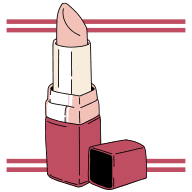How Important is Inclusivity in the Beauty Industry?
In an industry where beauty is often defined by a narrow standard, we've gathered insights from founders and a plastic surgeon to underscore the importance of inclusivity. From a personal encounter with limited shade ranges to viewing inclusivity as a trendy marketing imperative, here are four personal experiences that highlight this critical issue.
- Personal Encounter with Limited Shade Ranges
- Lacking of Representation in the Beauty Industry
- Cultural Sensitivity Enhances Patient Trust
- Inclusivity as a Trendy Marketing Imperative
Personal Encounter with Limited Shade Ranges
It wasn't until I found myself standing in the beauty aisle, scanning row after row of foundations that didn't match my skin tone, that I truly understood the significance of inclusivity in the beauty industry—this moment of frustration and exclusion sparked a deeper awareness and appreciation that beauty should be inclusive.
Inclusivity in the beauty industry means creating products and campaigns that cater to the diverse needs of all individuals, regardless of their skin color, gender, age, or physical abilities. It's about recognizing and celebrating the unique beauty that exists in every individual. It's not just a marketing strategy; it's about ensuring everyone feels valued, heard, and seen.
Despite the progress, there are still glaring gaps and instances of discrimination in the beauty industry. Many brands continue to offer limited shade ranges and fail to address the specific needs of marginalized communities. This lack of representation can make individuals feel excluded and undervalued, negatively impacting self-esteem and identity.
My experiences have profoundly shaped my perspective on the need for inclusive beauty. From struggling to find products that match my skin tone to feeling underrepresented in beauty campaigns, these experiences have highlighted the deep-rooted issues in the industry. They have driven me to advocate for change and support brands that prioritize inclusivity.
Fortunately, we're seeing positive steps toward a more inclusive beauty industry. Brands like Fenty Beauty have revolutionized the market with their extensive shade ranges and inclusive campaigns. Initiatives like the Pull Up for Change movement hold companies accountable and push for greater diversity and representation.
We all have a role to play in promoting inclusivity in beauty. Support brands and movements that prioritize diversity and representation. Share your stories and experiences to raise awareness about the importance of inclusivity. Together, we can drive change and create a beauty industry that celebrates and caters to everyone.
Inclusivity in the beauty industry is not just a trend; it's a necessity. By advocating for diversity and representation, we can ensure everyone feels seen, heard, and valued.

Lacking of Representation in the Beauty Industry
I remember walking into a skincare store for the first time as a teenager and feeling completely overwhelmed. Not only by the sheer volume of products but also by the fact that very few of them seemed to cater to my skin condition. Back in the day, there weren't many content creators or influencers who looked like me or who had similar skin tones. This lack of representation only amplified my feeling of exclusion and highlighted the beauty industry's failure to cater to diverse audiences.

Cultural Sensitivity Enhances Patient Trust
A patient once shared how her previous surgery at another clinic left her feeling alienated due to a lack of cultural sensitivity. Understanding the importance of inclusivity, I worked closely with her, incorporating her cultural and aesthetic preferences into her treatment plan. This experience underscored the significance of listening and personalizing care, ensuring every patient feels seen and valued. Inclusivity fosters trust and satisfaction, driving better outcomes and a more positive experience for all.

Inclusivity as a Trendy Marketing Imperative
In a world where inclusivity has continued to gather momentum, not only will the beauty industry be losing sales by failing to adopt an inclusive culture, but chances are that businesses in this industry will also be losing the recognition needed to stay at the top of their market. As a marketer, I recognize the importance of keeping up with trends, and today, it's an established fact that inclusivity is what is trendy.
Traditionally, beauty has been stereotyped and defined to only include a particular group, and as I have experienced, we all want to be accepted, respected, and appreciated for being our authentic selves.
Frankly, there is really no arguing the fact that the beauty industry has already been awakened to the fact that inclusivity is in their best interest. Personally, finding beauty and skincare products from my favorite beauty brands that have been created with ingredients to cater to the unique needs of my skin type and color helps me feel validated by the beauty industry.
Also, as a marketer, I strongly believe this to be important because it bodes well for the image and reputation of the industry when the totality of the population that makes up their market audience feels heard, seen, and sufficiently represented.


